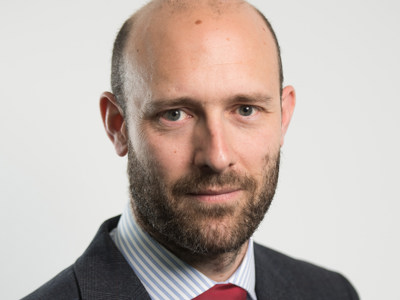
World Mental Health Day 2019
Today is World Mental Health Day, which encourages people all over the world to take the time to reflect upon their own mental health, talk about it with others and end the stigma attached to mental health issues.
Posted on 10 October 2019
We all have mental health, the same way that we all have physical health. As with physical health, people can have periods of good mental health and periods of bad mental health.
Good mental health doesn’t just mean not having a mental health diagnosis, it means being in a good place mentally to cope with everyday life. Likewise, someone can experience a period of mental ill health despite it not being permanent nor receiving any diagnosis for it.
There is a history of stigma being attached to mental health problems, and World Mental Health Day is part of the process designed to end that stigma.
You can help to do this by talking to those around you about your mental health, or talking to them about theirs. There isn’t any stigma around talking about someone having a cold or a sprained ankle, and likewise there shouldn’t be a stigma around talking about someone feeling sad, anxious or depressed. Mental health problems are very common, with anxiety and depression alone affecting 1 in 10 people at any given time.
Suicide prevention
The theme of this year’s World Mental Health Day is suicide prevention, with the key message being that suicide is preventable. Worldwide someone commits suicide every 40 seconds. In the UK suicide is the leading cause of death among 20-34 year olds and is particularly prevalent amongst men. There were over 6,500 suicides registered in the UK last year, an 11.8% increase on the year before. For a preventable cause of death this is an alarming statistic.
Unfortunately, those most in need of treatment do not always receive it, sometimes resulting in suicide. This can happen in a number of ways, including a failure to be referred to the appropriate services, a failure to identify red flags that show that someone is in need of help, or a failure to properly protect those who have been admitted to a mental health unit who are at an increased risk of suicide.
Following suicide – the search for answers
If you have lost someone through suicide then you are likely to have a lot of questions about how this happened. This is particularly the case if your loved one was already on the radar of health service professionals, or was trying to seek help for what they were going through.
If the deceased was already being treated within a healthcare setting (whether as an in-patient or a voluntary out-patient) then you may be able to ask questions of the healthcare provider by way of their Patient Advice and Liaison Service (PALS). The healthcare provider may also have started their own internal investigation into the death, and you should hopefully be asked to be a part of that process, as well as be provided with the findings of the investigation upon its conclusion.
Inquests following suicide
If someone is suspected to have taken then own life then the matter will also be referred to a Coroner and there may be a subsequent inquest hearing to investigate the circumstances surrounding the death. An inquest is another opportunity for the family of the deceased to ask any questions that they may have about how their loved one came about their death.
The Coroner will identify all parties who have an interest in the inquest proceedings. The family will always be one of those parties, but other parties may include a healthcare trust where the deceased was receiving treatment, or individual clinicians who were involved in their care. The inquest proceedings are non-adversarial by nature, though healthcare trusts and individual clinicians will almost always be legally represented.
The family of the deceased are also entitled to legal representation, although legal aid for inquests is extremely limited. A recent Freedom of Information request showed that half of the mental health trusts in England spent over £4m of public money in 2017-18 on legal representation at inquests, whereas in the same year only £117,000 was granted in legal aid for families.
How solicitors can help following suicide
Leigh Day often help families that have been bereaved by suicide. We can provide advice regarding going through a healthcare trust’s own complaints procedure, as well as the outcome of any internal investigation by the trust and any potential legal claim that may arise from the circumstances of the death.
Legal claims can arise in many different circumstances, and include a negligent failure to refer an individual to mental health services or inadequate systems being in place at a mental health treatment centre which has led to an individual negligently being afforded the opportunity to attempt suicide.
Claims can arise from various settings, from in-patient to out-patient, and from treatment in the community, to treatment in an acute hospital setting or even treatment in prison.
Leigh Day can also represent families throughout inquest proceedings, helping to put families on an equal footing with the legally represented healthcare trusts and doctors, as well as other parties that may be represented at the inquest such as the police or the local authority.
Our clinical negligence and personal injury teams also bring claims in certain circumstances on behalf of those who have sustained a psychiatric injury as a result of witnessing a loved one become ill or injured due to negligence, or after being the victim of negligence themselves.


